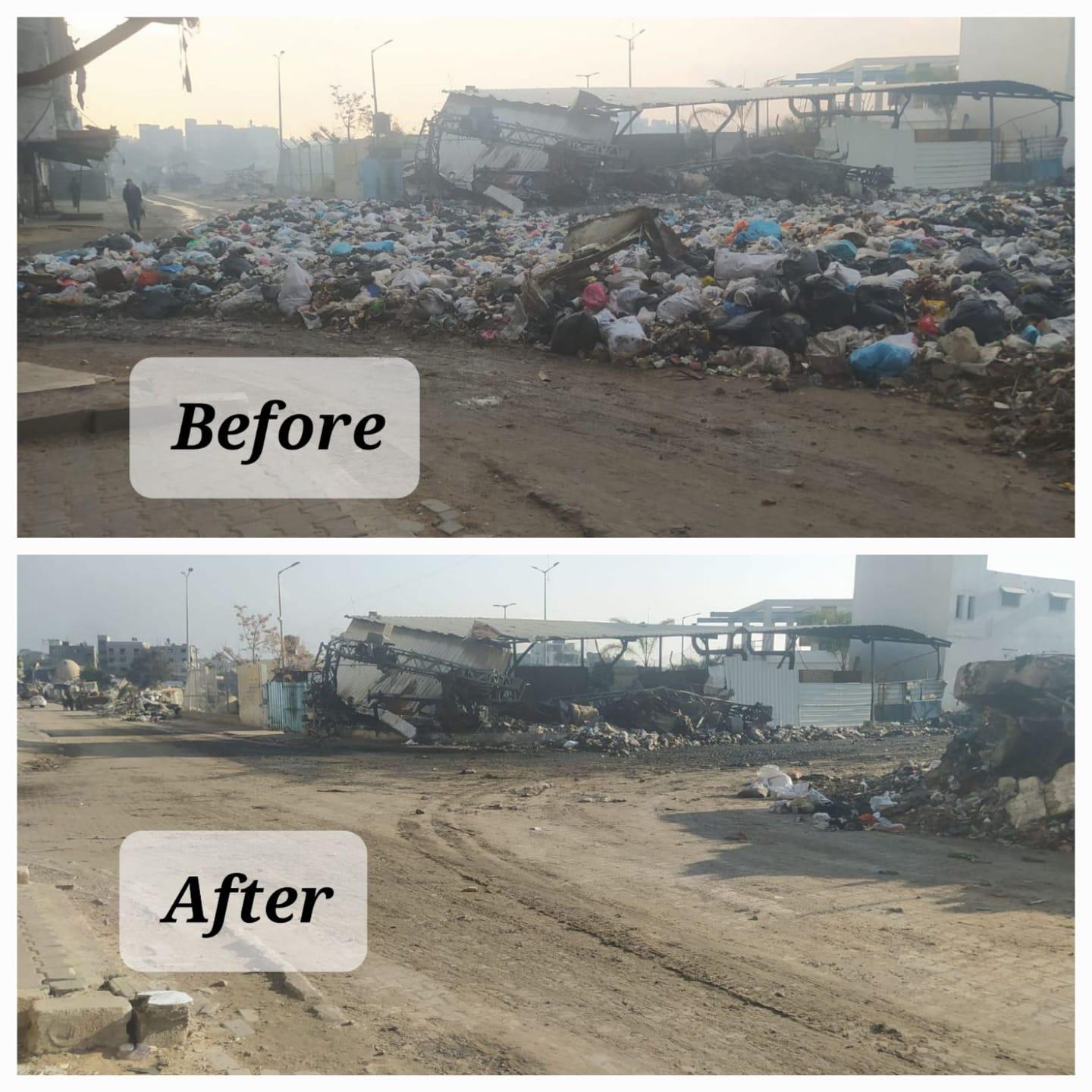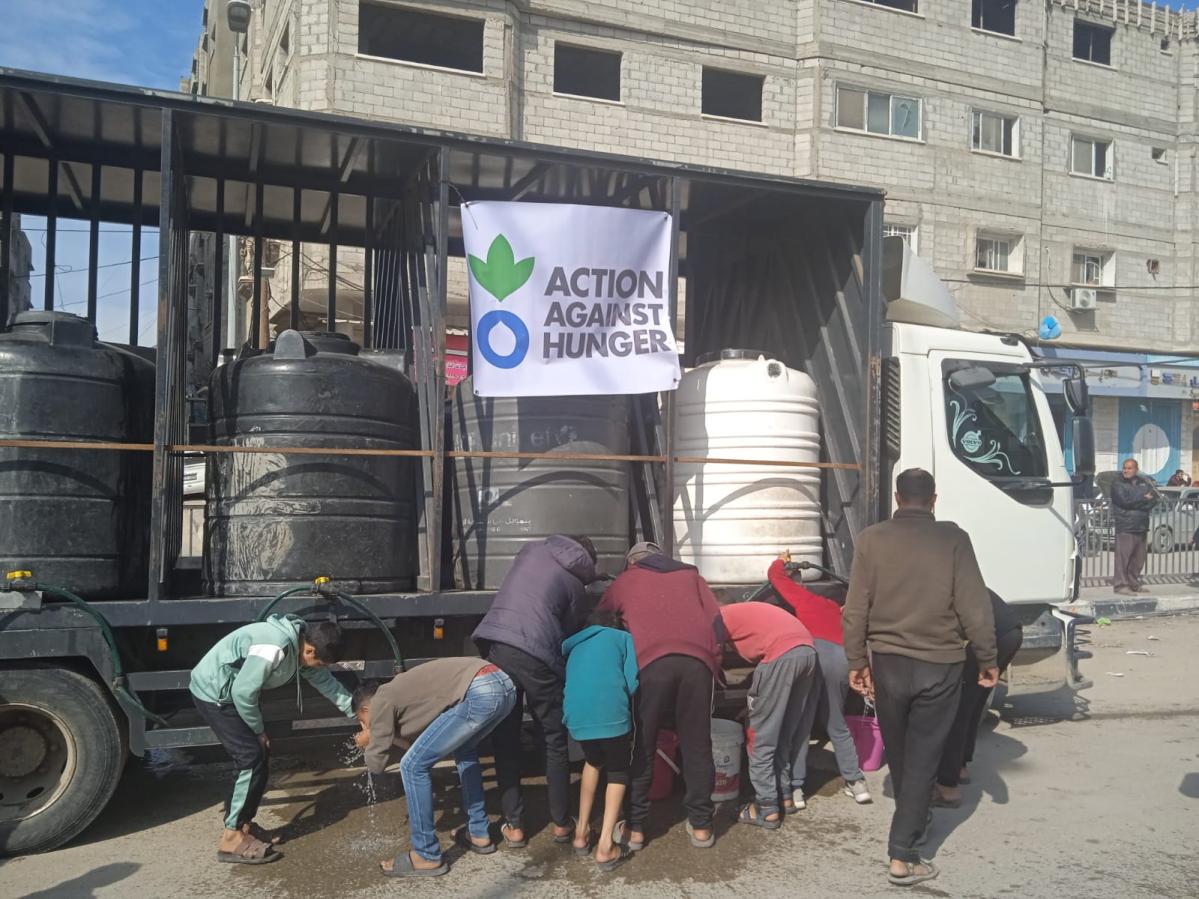

Action Against Hunger receives a call every five minutes with requests to remove solid waste from the streets
HUMANITARIAN CRISIS IN NORTHERN GAZA
- Action Against Hunger was one of the only organisations able to reach people in northern Gaza after the siege was lifted on 27 January.
- At least 15 kilometres of roads in the northern governorates of Gaza need to be cleared of solid waste and rubble.
- Nearly 600,000 people have crossed to northern Gaza, half of them on foot for more than five hours from southern areas of Gaza. People are desperate to find things as basic as water or items to clean their shattered demolished homes and care for their health.
Madrid/Jerusalem, 6 February 2025. Days after the ceasefire went into effect, Action Against Hunger teams in Gaza City reached previously inaccessible areas of northern Gaza. "We were one of the only organisations to reach inside the North Gaza governorate just days after the siege was lifted," says Natalia Anguera, Head of Middle East Operations at Action Against Hunger.
"The level of destruction is immense. Everything is rubble. People are cleaning their houses, throwing rubbish into the main street because they can't do anything else. Rubble and solid waste are blocking the roads, obstructing the movement of cars and humanitarian vehicles," adds Natalia Anguera
Action Against Hunger was one of the only organizations in the North Gaza governorate able to carry out solid waste removal for the first several days of the ceasefire. Our staff in the northern governorates receive, on average, one phone call every five minutes with requests for such assistance. Action Against Hunger teams in the North plan to clear at least 15 kilometres of roads of solid waste build-up. At least 655 cubic metres of solid waste have been removed since the ceasefire came into effect.
Testimonies from northern Gaza
Farid – for confidentiality purposes, the name has been altered – Action Against Hunger staff, knows first-hand the conditions in which thousands of Palestinians survive today in Gaza, especially in the North. "One painful moment I will never forget was when I went to check the conditions of the toilet where a pregnant woman lives with her husband and young child. I went to look for the latrine but found nothing but a small bucket. The hardest thing was to find out that they were using that same bucket for more than one purpose."
Like Farid, Action Against Hunger staff arrived quickly to support people trying to return to the North. Teams tell of hundreds of thousands of people returning from southern Gaza to what is left of their homes in the North, half of them on foot for more than five hours, desperate to find basic things as water or items to clean up their demolished homes and care for their health.
"As soon as we arrived with the water trucks, their eyes were full of gratitude despite the pain they were feeling," says Samia – for confidentiality purposes, the name has been altered –, an Action Against Hunger worker in Gaza. Our teams distributed about 10,000 litres near Salah ad-Din Street and another 7,000 litres in Al Rasheed to families making their way north.

Action Against Hunger was present in the North even before the ceasefire went into place, supporting people prior to the cease in hostilities. In addition to water distribution, "as part of our efforts to help internally displaced families, our teams built latrines and distributed mops, brooms, bleach, disinfectants and many other items to maintain cleanliness and health in 52 shelters," explains Natalia Anguera.
Omar, a Palestinian who received support from Action Against Hunger, recounts the impact that receiving these cleaning kits has had on his life: "My 30-year-old sister, Yasmin, has cancer and we have to ensure minimum hygiene so that her illness does not worsen. When the conflict started, we left home with nothing, and these materials help us a lot now, especially because we don't have the financial capacity to buy them.
Ola, who was also helped by Action Against Hunger, says, "There was an outbreak of skin diseases among the children due to poor hygiene. With the tools distributed, we were able to clean the place better and use disinfectants, which helped reduce the spread of the disease and keep the children healthy.”
